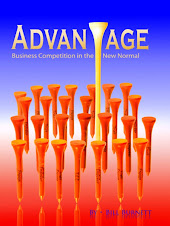No doubt every manager is familiar with the plethora of research which shows that an engaged workforce is substantially more productive than an unengaged or disengaged workforce. Research also suggests that the key to having a highly engaged workforce is the behavior of the leader. Almost all business leaders are familiar with Jim Collins’ Level 5 Leader who is self-effacing, reserved, quiet and who listens well. The Level 5 leader is the most adept at engaging the workforce.
In the July 2011 Harvard Business Review article Why Fair Bosses Fall Behind authors Wiesenfeld, Rothman, Wheeler-Smith and Galinsky point out that, “the most effective leaders are generally those who give employees a voice, treat them with dignity and consistency, and base decisions on accurate and complete information.” These are Level 5 Leaders, bosses who treat people fairly.
But here is the rub. According to the authors, your ambition to get to the top of an organization may be undermined by this ‘good boss’ behavior. In the article they suggest that decisions about high-level promotions most often center on perceptions of power, not fairness, and apparently, it is hard to be both -- powerful and fair.
However, other psychological research may suggest that there is something more fundamental going on here. Interestingly, the likely reason this is true could be due to how the human brain functions and how it evaluates human interactions.
The author’s claim that we base high-level promotions on perceptions of power is probably a bit off target. (Power, after all, isn’t really a competency.) Experience suggests that when we look to hire someone into senior management roles we look for people who have superior intelligence; who are highly competent; and who have established themselves as experts. And i
t is in this evaluation that the brain screws us up.
Neuroscientist suggest that if you want to be perceived as having superior intellect, as highly competent, and as an expert, you’d better go to the dark side: you’d better go negative.
According to neuroscience, in our brains, positive emotions act as signals that the environment is basically benign, while negative emotions signal that some problem or threat is at hand. The theory argues that negative emotional experiences and words trigger a distinct, elaborate and detailed style of cognitive interpretation, whereas positive experiences and words trigger more general and script-based cognitive processing. In other words, our brains work much harder when we are processing the negative than when we process the positive.
It turns out that when the brain is working harder, it evaluates the interaction as more intelligent - it takes more brain-power to process, therefore it is more intellectually stimulating, therefore more intelligent.
The next time you’re in a meeting, and the boss starts a sentence with “I think...” pay attention to how people in the room agree with the boss. (Don’t worry about the people who disagree with the boss, if the boss says “I think” then these people are probably on their way out the door.) For the people who agree with the boss, you’ll see two kinds of responses.
The first will go something like this. Suppose the boss says something like “Well, I think our customers are perfectly content with our current three color options.” The response will be agreeable: “You are absolutely right boss, our customer are delighted with the current color schemes, we should just keep those in place for the foreseeable future.”
The second person will say something like this, “The people in this company

who keep pushing for more color options, well I just don’t understand them. If they’d put the slightest effort into really trying to understand what our customers value, and why they buy from us, they wouldn’t be wasting our precious time and resources on this nonsense. I am very happy, boss, that you see this so clearly. I couldn’t agree more, our current color offerings are spot-on and we should be focussing on more important issues.”
Of these two people, whom do you think is the climber? It’s the second one, of course. So, if there are any Machiavellian Princes out there, here is the cunning duplicity for you: Be a Level 5 Leader to the people who report to you and who you depend upon to be as engaged and productive as possible. To your boss and his or her peers, appear to be a bit of an jerk; not too much, but provide an ample enough negative positioning to appear to be more intelligent, more competent and more of an expert. Then, when they make you CEO, bury the jerk and be a great leader.
(Oh, and I should mention that there are two distinct ways to structure negatives. Psychology suggests that one way is far more effective than the other. Want to know more?...)
 Recently I attended the University of Chicago Booth School of Business Entrepreneurial Roundtable event where two Kellogg graduates spoke. One of them was Robert Pasin, CEO of Radio Flyer, the red wagon we all grew up with.
Recently I attended the University of Chicago Booth School of Business Entrepreneurial Roundtable event where two Kellogg graduates spoke. One of them was Robert Pasin, CEO of Radio Flyer, the red wagon we all grew up with.















